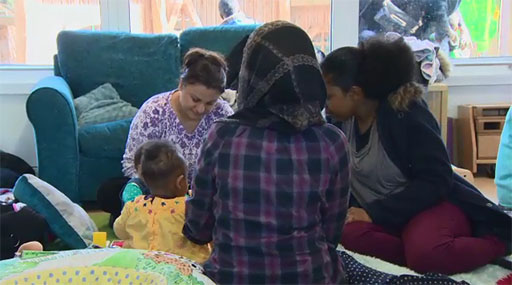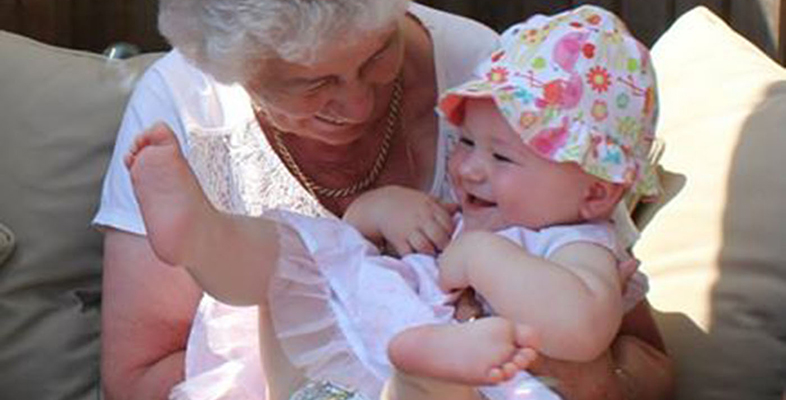4.2 Different purposes
Similar multiple benefits for both children and parents experiencing such sessions was a theme that emerged from Martin Needham and Dianne Jackson’s research study that compared parent–toddler groups in England and Australia (Needham and Jackson, 2012). They found that the groups were valued because they offered new play and social experiences for the children and an informal, accessible route to sources of support, advice and signposting to other services for parents. However, the fact that the groups fulfilled so many different functions created some tensions around purpose, which had to be managed by parents, children and the practitioners involved, as these practitioners noted in the research interviews:
‘The parents I think get a lot out of spending time with each other. That is always a dilemma because I think, for some of them, it’s life-saving but that means they don’t spend much time with their children so it’s kind of how you mediate between those two things.’ (Facilitator, Australian parent–toddler group)
‘[…] I think parents need to understand also that they’ve got to be there with them, for them not to play on their own, for them not to supervise them, but to support them also to be involved because it is a stay and play.’ (Practitioner, English parent-toddler group)
Consequently, such groups offer an extension of learning within the family for the children who attend in many different ways. Besides new toys and activities to explore, the sessions open up the potential for extending social relationships with peers outside the family group and experiencing the intricacies of making these connections. Within such groups, children will also test and develop their understanding of the attachments they have to significant adults. They may experience their parent choosing not to play with them but talking to another person instead. They may see another parent playing a game with their child that they wished could be played with them. They might discover that they really enjoy time away from their parent, and the surprise of how a different adult engages with them.
Equally, it is important to remember that the children will be significant contributors to the learning experiences within these sessions. This parent from the nursery in Scotland recognised the contribution that her son was making to her understanding of him as a person:
‘And I get to watch him playing with other children, interacting, learning to share, which is a big thing at this age.’
Sessions such as ‘stay and play’ or parent–toddler groups provide a setting in which children’s capacity to influence their surrounding world can be recognised. In such environments beyond the home, all family members have the opportunity to extend their learning about each other.
Activity 3
Talking about ‘Stay and play’
Watch the film clip below, about a ‘stay and play’ group that runs as part of a children’s centre in Bristol. As you watch, listen to the different perspectives of the parents and practitioners on the benefits of attending such groups.

Transcript
Now watch the clip a second time. You are going to make notes on the views on the benefits of ‘stay and play’ sessions of the people who are interviewed in the space provided. You can use the ‘pause’ button as you watch the film to make the note taking easier.
| Practitioners | Parents |
|---|---|
Erin | Adimma |
Ian | Siobhan |
Anjali | |
When you have watched the film a second time and made the notes look at the practitioners’ and the parents’ comments. Are there any differences in their views?
Comment
You will notice that many of the issues you have read about regarding groups that parents and children attend together are raised in the film clip. Both practitioners and parents see the benefits of the sessions but there seem to be slight differences in emphasis. For the practitioners the learning experiences during ‘Stay and play’ for both children and parents are highlighted. For the parents the social aspect appears to be a key element through making new connections with other parents and finding out ‘you are not on your own’ (parent interviewee, Bristol).
Finding out about local ‘stay and play’ groups
Attending ‘Stay and play’ is clearly an important extension of routines for the families in the film clip, but the interviewees do not mention how they first found out about the group. Was it through ‘word of mouth’ or because the centre’s location was close by? Imagine you are a new parent in the area where you live. How would you go about finding out about where ‘stay and play’ or ‘parent and toddler’ sessions run? Note down a few ideas in the box below.
Comment
When you have noted down your ideas, you could ask people you know the same question and see if they have some more ideas you could add to your list. When you have completed your list try one or two of the suggestions. Do they lead you to find out about local provision? What does this say about the support your local community provides for parents and families?
Key points
- ‘Stay and play’ type sessions offer multi-faceted learning experiences for children, parents and practitioners.
- Children and parents extend their understanding of the relationships between them at group sessions that they attend together.
